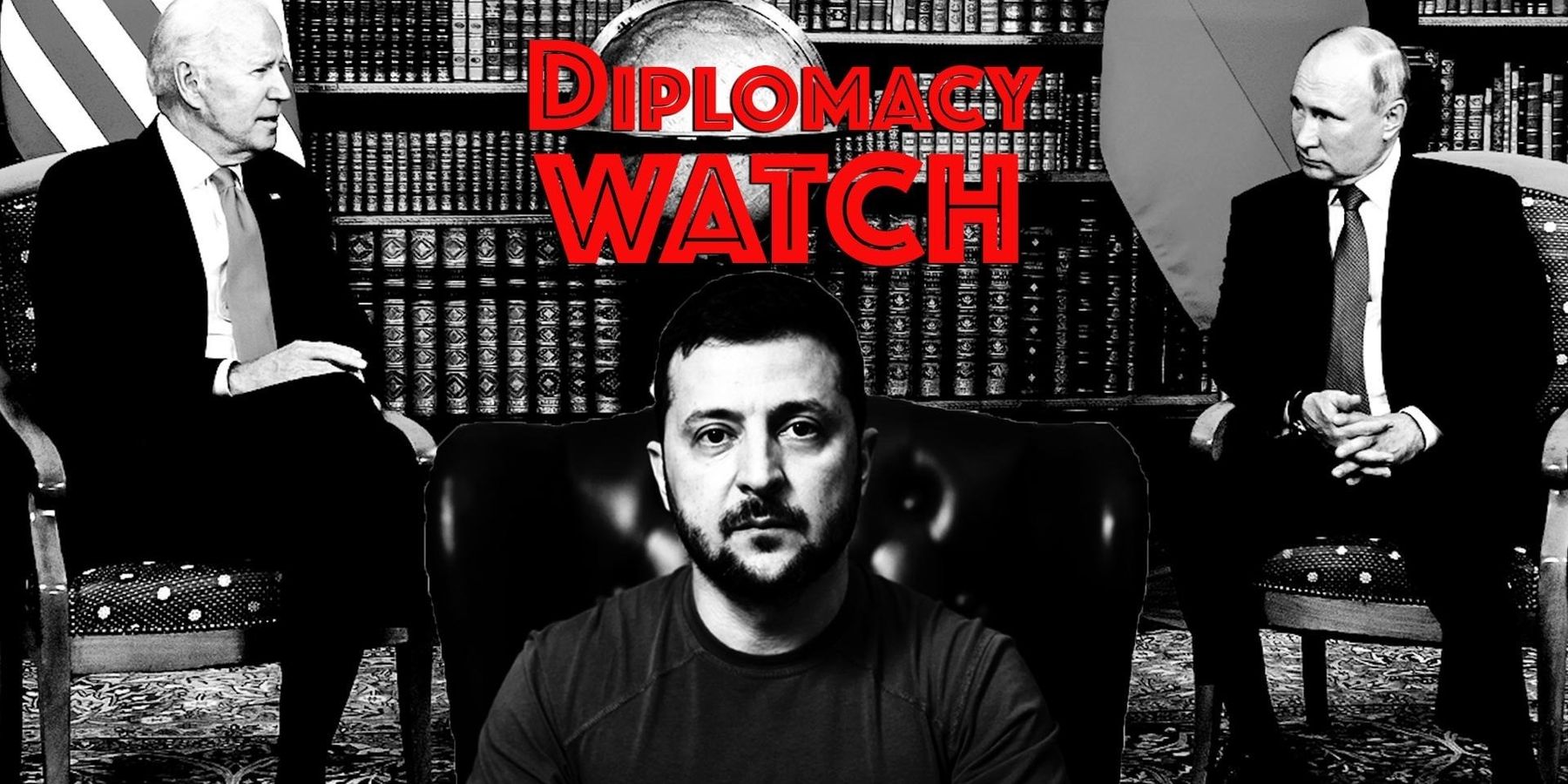Russian President Vladimir Putin wants to increase the size of Russia’s military even while it’s seeing regular successes on the battlefield. These developments are leading some in the Ukrainian military and civilians alike to become more open to the idea of talks aimed at ending the war.
The Kremlin is currently negotiating a new military budget proposal of upwards of $145 billion which would mean that, if signed into law, Russia’s 2025 defense spending would grow to 32.5% of the budget, a 4.2% increase from this year’s spending.
This proposed increase coincides with the Kremlin’s recent announcement that it would revise the country’s nuclear doctrine, saying that Russia could respond to a conventional attack with nuclear weapons and that it would consider any attack that is supported by a nuclear power to be a “joint attack” — a policy presumably meant to deter at any Ukrainian attack inside Russian territory with U.S/Western weapons.
And even as the Russian military is increasingly seeing more successes on the battlefield, it’s about to increase in manpower. To support his previous order to add 180,000 troops to the military, Putin has called up 133,000 Russian men to serve as part of the autumn draft.
Meanwhile, it appears the Ukrainian military and public at large are growing war weary. The Financial Times reported this week that “Ukraine is heading into what may be its darkest moment of the war so far” in the face of increasing battlefield losses, its struggles to replenish military ranks, and the prospects of facing another winter with regular power and heating outages. “Society is exhausted,” said the Ukrainian parliament’s foreign affairs committee chair.
FT points out a poll conducted this summer by the Kyiv International Institute of Sociology for the National Democratic Institute which found that 57% of the public supported negotiations with the Kremlin, up from 33% the previous year. Additionally, 55% are opposed to a deal that would include ceding land to Russia, down from 87% last year.
FT also noted that according to KIIS polling, “making any deal acceptable that allows Russia to stay in the parts of Ukraine it has seized since its first invasion in 2014 will hinge on obtaining meaningful Western security guarantees, which for Kyiv means NATO membership.”
Diplomats engaging with Ukraine also report that Zelenskyy and other Ukrainian officials seem more open to peace talks. One diplomat said, “We’re talking more and more openly about how this ends and what Ukraine would have to give up in order to get a permanent peace deal.”
In other Ukraine war news this week:
Reuters reports that China and Brazil, amongst others, compiled a peace plan to present to Ukraine and Russia last Friday. Seventeen countries met in New York during the last United Nations General Assembly meeting to discuss a potential end to the war, with China chairing the talks. Zelenskyy showed no interest in the peace plan, and questioned why they were drawing up alternative plants to his own.
Incoming NATO secretary-general says that the alliance will support Ukraine regardless of who wins in America’s November election. According to The Wall Street Journal, new Secretary-General Mark Rutte said, “I am absolutely convinced that on this issue, they both see what is necessary.” He added confidently that “supporting Ukraine is the right thing to do. And it is also an investment in our own security.”
In September 30th’s State Department Briefing;
State Department Spokesman Matthew Miller responded to a question regarding Ukraine’s ability to strike at Russian targets. Miller reiterated that Ukraine does not need permission to strike Russian targets with its own weapons. He also stated that the United States had given Kyiv permission to use some American weapons in a retaliatory fashion against targets in Russia.
He was pressed as to why Ukrainians are limited as to which American weapons they can use to strike targets in Russia. In his response he said, “We look at all of the capabilities and all the tactics and all the support that we provide Ukraine in totality, and look at how – when we approve any new weapon system or any new tactic, we look at how it’s going to affect the entire battlefield and Ukraine’s entire strategy. And that’s what we’ll continue to do.”
In this week’s October 2nd State Department Briefing;
A reporter asked Mr. Miller if Washington was ready to start implementing Ukraine’s proposed victory plan, to which he responded with, “We took that plan, we reviewed it, we saw a number of productive steps in it. We’re going to engage with them about it.”
Finally, Miller interacted with a question which compared US support of Israel during the recent Iranian missile strike to the support which Ukraine has received. He explained that the United States gives Ukraine the support needed to shoot down missiles, saying that “we have made clear that we support Ukraine’s right to defend itself not just in words but in deeds, and we have provided them with the equipment they need to shoot down missiles.”
- A war draft today can't work. Let us count the ways. ›
- When officials say the quiet part about Russia and NATO out loud ›
- Leaked drafts of NATO, US responses to Russia are surprisingly revealing ›
- Russia makes substantial gains in Ukraine’s east | Responsible Statecraft ›
















